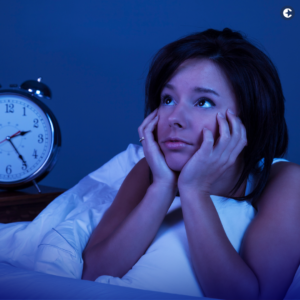In an unexpected twist, the global crisis may have left us tossing and turning more than ever. Is it possible that COVID-19 has nudged us into a widespread battle with insomnia? This intriguing question beckons a deeper dive into the nocturnal struggles many are facing.
Main paragraphs:
The Unseen Impact of COVID-19
- The pandemic has infiltrated every facet of our lives, but its impact on our sleep patterns is an issue that lurks in the shadows. With an increase in anxiety, uncertainty, and a disruption of our daily routines, it’s no wonder that many are finding it hard to close their eyes at night.
- Rising Stress Levels: The fear of infection, economic instability, and social isolation has heightened stress levels, directly impacting our ability to unwind and rest. Our minds, overloaded with worry, refuse to power down.
- Disrupted Routines: The blurring lines between home and work have further complicated our sleep schedules. The lack of a regular routine can confuse our body’s internal clock, making it challenging to fall asleep and wake up at consistent times.
- Increased Screen Time: With more of our days spent in front of screens, whether for work or leisure, the blue light emitted is tricking our brains into staying alert. This digital engagement is a significant hurdle to achieving restful sleep.

The Ripple Effect on Health
- Insomnia doesn’t just leave us groggy and irritable; it has profound implications for our overall health. Lack of sleep can weaken the immune system, making us more susceptible to illnesses, including COVID-19.
- Mental Health: Persistent sleeplessness is closely linked to anxiety and depression. As we navigate through these trying times, the vicious cycle of stress and insomnia can exacerbate mental health challenges.
- Physical Health: Sleep is crucial for recovery, growth, and metabolic health. Insomnia can lead to chronic health issues like obesity, diabetes, and cardiovascular diseases, adding layers to the pandemic’s health crisis.
Conclusion: The shadow pandemic of insomnia is a growing concern that demands attention. By acknowledging the issue and adopting healthier sleep habits, we can mitigate the nocturnal fallout of COVID-19. Let’s strive for better sleep hygiene, limit our screen time before bed, and seek professional help if insomnia persists. Remember, in the quest for health and immunity, every hour of sleep counts.
For more follow us on Instagram, Facebook, Twitter, & LinkedIn.



